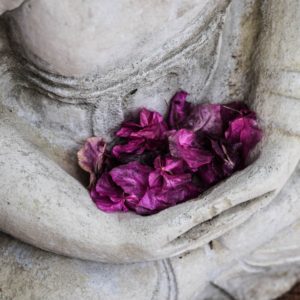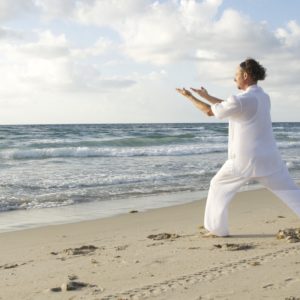A Good Night's Sleep
Natural support for sleep

A bit about sleep
All creatures sleep, but have you ever wondered why, or how much sleep you really need, or whether it’s important when you sleep. Has it ever occured to you that humans are the only species that wilfully stays awake after nightfall or after we start to feel tired. Probably not. The only time we really think about sleep is when it becomes elusive.. About 30% of the population suffer from some degree of insomnia, either acute or chronic.
Your sleep is regulated by internal ‘body clocks’ that respond to light and dark and to temperature – and seemingly even altitude..
Our natural wake/sleep cycle is approximately 24 hours – a woman’s cycle is about 6 minutes shorter than a man’s, apparently. A dizzying array of molecules known as Sleep Regulating Substances (SRS) interact to send you to sleep and wake you up in the morning.
Sleep scientists believe that everyone needs a certain number of hours of sleep a night, without which our health begins to suffer. The following figures come from the National Sleep Foundation.
| Age group | Age range | Hours |
|---|---|---|
| Teenagers | 14-17 years | 8-10 hours |
| Young adults | 18-25 | 7-9 hours |
| Adults | 26-64 | 7-9 hours |
| Older adults | 65+ | 7-8 hours |
Lack of sleep is bad for your health. It can disrupt your memory and ability to lean, and your stamina, general health and mood can all suffer. You may become more susceptible to obesity, cardiovascular disease and diabetes and there is a greatly increased risk for depression.
There are different types of sleep disturbance; an inability to fall asleep, waking on and off through the night, waking too early. We usually think of insomnia when we think of sleep disturbance, but some people suffer from sleeping too much, (hypersomnia) or have a condition called narcolepsy which causes them to fall asleep suddenly wherever they are or whatever they’re doing..
Lots of things can affect your ability to sleep well. Pain will certainly do it, itching is another thing. Stress, depression, sleep-apnea are also culprits, and of course there’s also the worldly issues of noisy neighbours, or a partner who snores!

A Chinese medicine view of sleep
Like everything in Chinese thinking, sleep cycles are just a reflection of the waxing and waning of yin and yang. of being in harmony with light and dark, day and night, and with the natural rhythms of the world.
According to Chinese Medicine (CM) all physical and mental symptoms are reflections of the balance of internal processes, and the effects of lifestyle. A Chinese medicine diagnosis might pinpoint a deficiency of qi or blood, yin or yang, an excess of heat or cold in the body, a lack of movement of energies or a chain of imbalances in their production and circulation.. Those same imbalances might also be causing other symptoms such as anxiety or depression.
Whatever the Chinese diagnosis, several western studies have shown that both acupuncture and herbs can be very effective in changing sleep patterns. Both types of treatment modulate various molecules that can balance sleep and alertness.
The Chinese principles of living in harmony with the world around you is fundamental to deep refreshing sleep. Like the western concept of ‘sleep hygiene’ It’s about going to bed at the same time each night and getting up at the same time each morning. and a variety of other ‘common sense’ things. Beyond that, your CM diagnosis would also indicate dietary changes that would help to re-balance your internal energies.
Sounds, aromas, meditation, breathing techniques and qi gong can all add to your abiity to take control of your own sleep cycles. If you come for treatment we can discuss lifestyle changes and things to add into your daily routine that will re-unite you with a good night’s sleep.
Get in touch if you’d like to find out if I could help, or to book an appointment.

Help yourself to a good night's sleep
Here’s a little list of things you can do to improve your chances of falling asleep and sleeping through the night.
| Do | Don't |
|---|---|
| Make sure your bed is comfy | |
| Go to bed at the same time | Stay up beyond 'bedtime' |
| Sleep in a cool dark room | Watch TV or computer screens in bed |
| Get up at the same time - even if you're tired | Drink coffee after 3 in the afternoon |
| Make a to do list for the morning | Go to bed worried. Write it down and forget it. |
| Get your things ready for the morning | Smoke - it interferes with breathing |
| Start to wind down at least an hour before bed | Eat a late meal |
| Get enough exercise during the day | Snack before or in bed |
Obviously, there are loads more – I’m sure you know your own bad habits and can think of ways of dealing with them!






